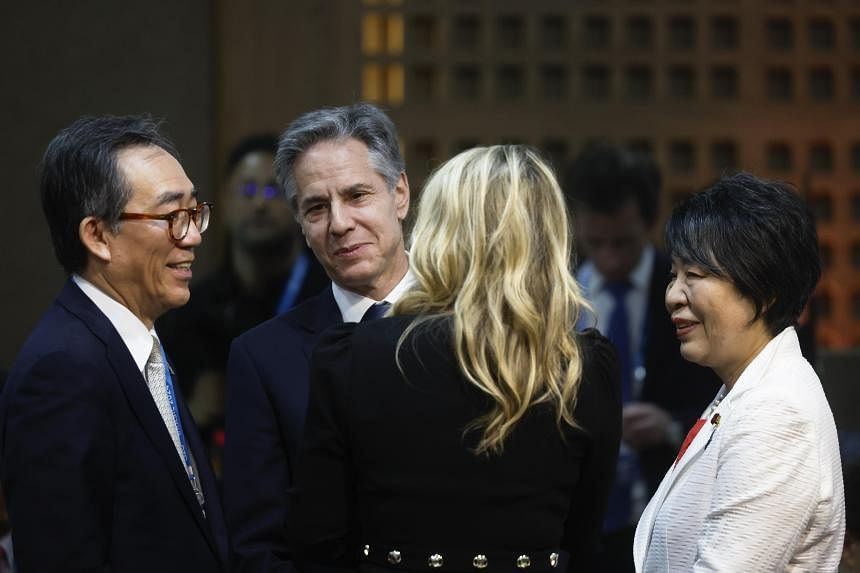TOKYO - Japan summoned South Korea’s ambassador on Feb 21 to protest a compensation payment by a Japanese company related to the thorny issue of wartime forced labour.
The countries have long been locked in a bitter dispute over Japan’s use of forced labour during its brutal decades-long occupation of the Korean peninsula before and during World War II.
Ties have been improving under Korean President Yoon Suk-yeol, however, who in 2023 unveiled a plan to compensate victims without direct involvement from Japan.
The family of a South Korean victim who won a wartime labour case against Japanese shipbuilder Hitachi Zosen in December received money from the company this week.
The money was retrieved from a deposit provided by the company to a court in Seoul, after South Korea’s top court in December ordered Hitachi Zosen to pay 50 million South Korean won (S$50,400) in compensation to the victim.
The indirect payment – the first of its kind – has drawn condemnation from Japan, which maintains that the forced labour dispute was settled in a 1965 treaty.
Japan’s Vice-Foreign Minister on Feb 21 “summoned South Korean ambassador to Japan Yun Duk-min and lodged a strong protest”, top government spokesman Yoshimasa Hayashi told reporters.
The retrieval of the payment “imposes an unfair disadvantage to a Japanese company based on a verdict that clearly violates” the 1965 deal, Mr Hayashi said.
Around 780,000 Koreans were conscripted into forced wartime labour by Japan, according to data from Seoul, not including women forced into sexual slavery by Japanese troops.
Japan has argued that the 1965 treaty, which included a reparation package of about US$800 million (S$1.08 billion) in grants and cheap loans, extinguished victims’ right to sue.
Mr Yoon’s domestically unpopular moves to bury the historical hatchet are partly an attempt to confront growing military threats from North Korea jointly with Japan.
Meeting on the sidelines of the Group of 20 summit in Rio de Janeiro on Feb 21, Japanese Foreign Minister Yoko Kamikawa and her South Korean counterpart Cho Tae-yul emphasised continued cooperation on Pyongyang.
The Japanese Foreign Ministry said in a statement posted to X, formerly Twitter: “The two ministers exchanged their views on North Korea, which continues provocative actions, and concurred to continue to work together.”
However, Ms Kamikawa also “expressed strong regret regarding the Hitachi Zosen case, as it inflicts unjustifiable damages and costs on the said company”, the statement said.
In 2023, Mr Yoon and Japanese Prime Minister Fumio Kishida have resumed regular high-level talks, with Mr Yoon in Tokyo in April and Mr Kishida travelling to Seoul in May.
Contacted by AFP, a spokesman for Hitachi Zosen said the company’s position on the issue “remains unchanged”, that the December verdict by South Korea’s top court “is extremely regrettable as it is against the 1965 treaty, and against the Japanese government’s and the firm’s” views on the issue. AFP

